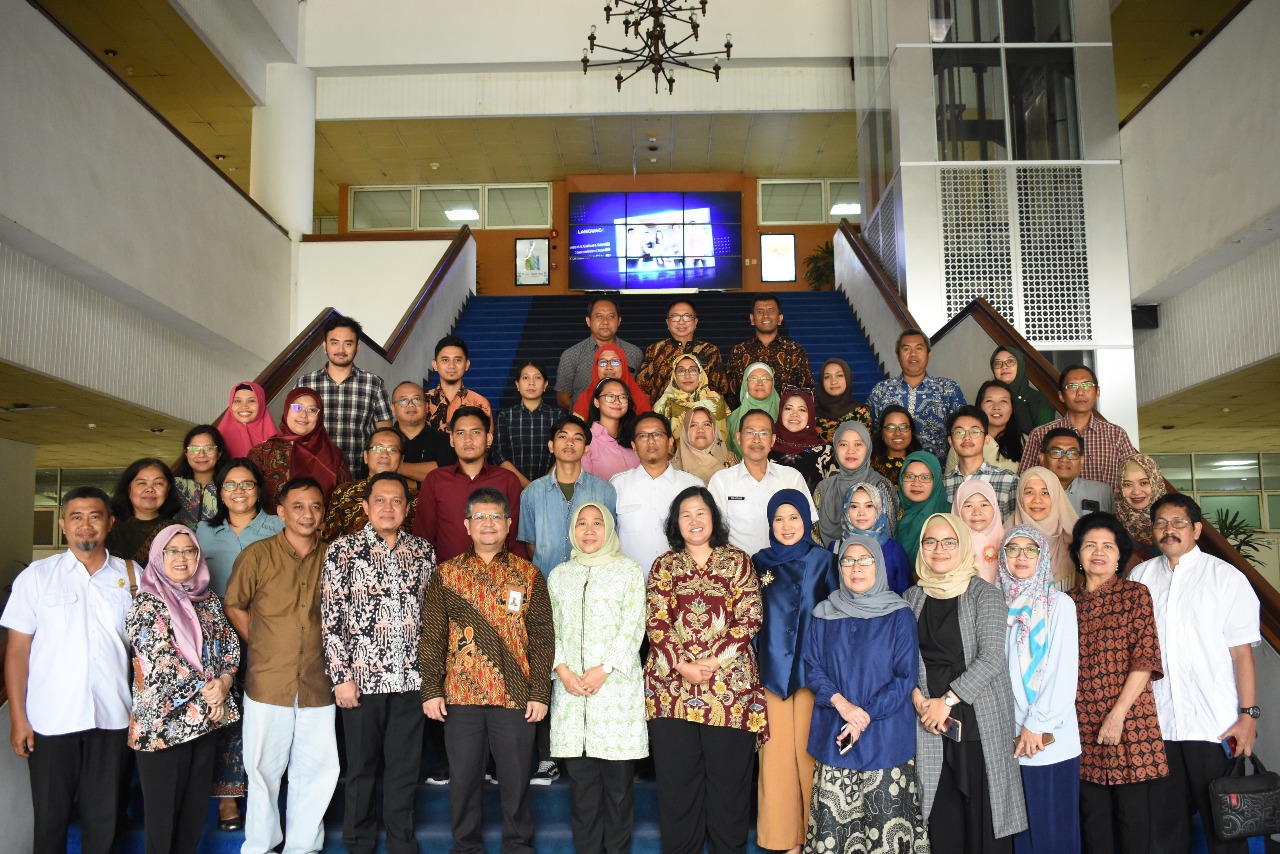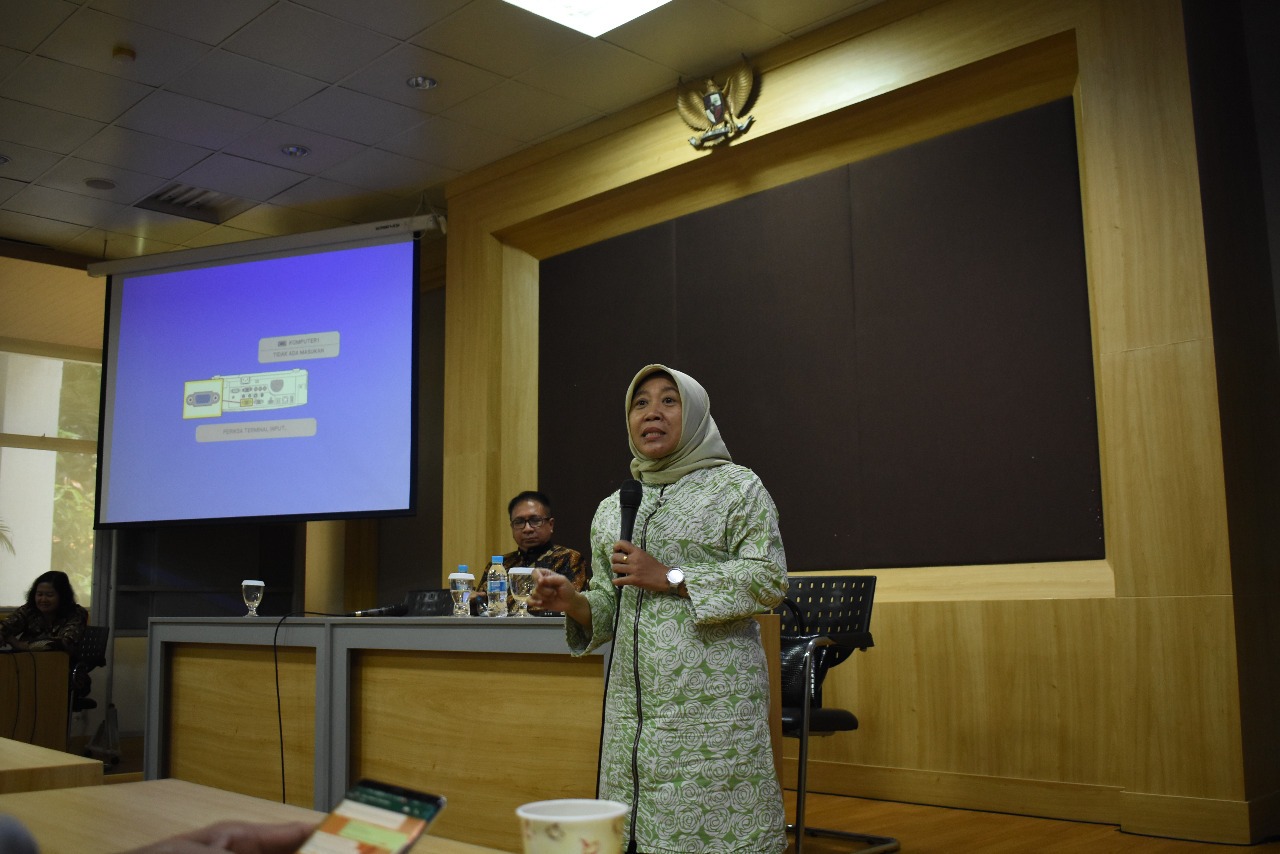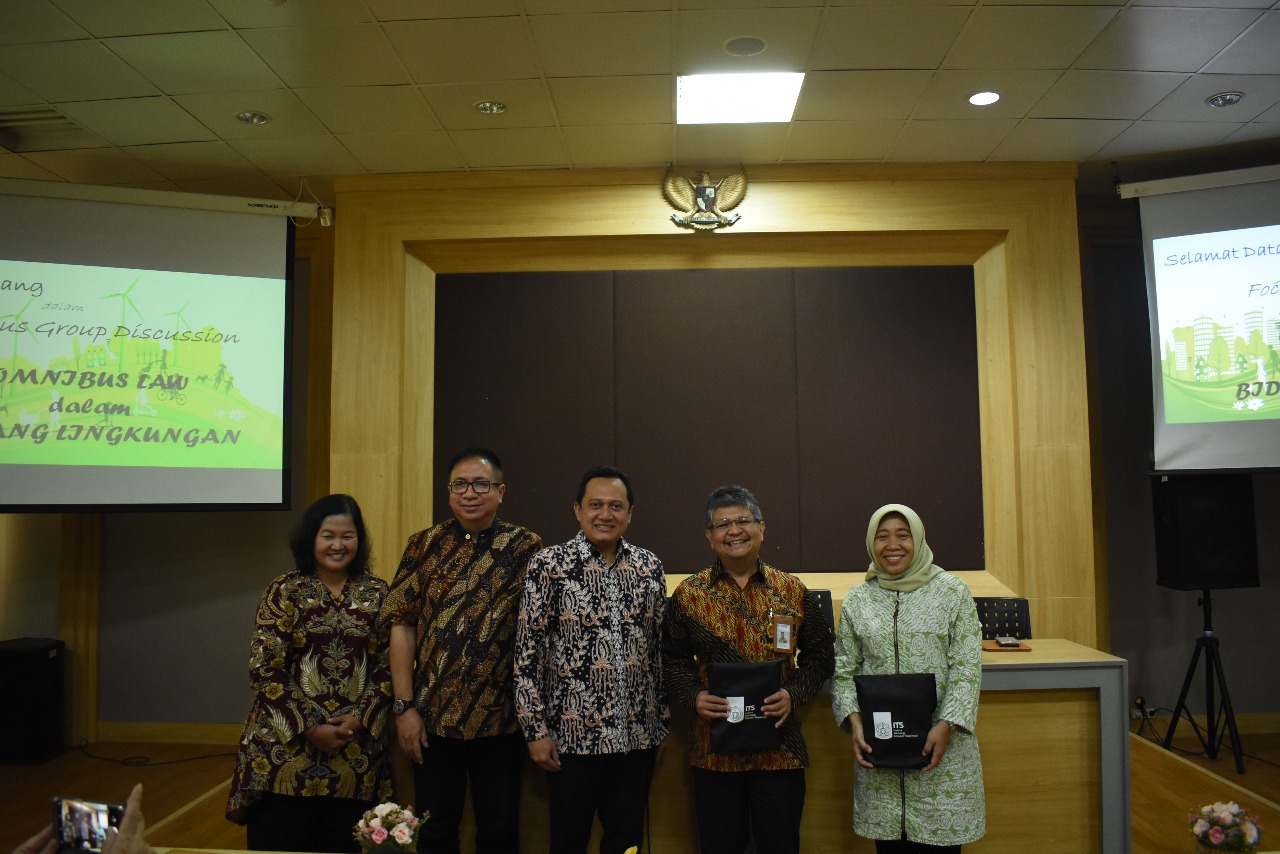Addressing Omnibus Law, ITS Held Joint Discussion

The speakers and participants of the FGD Omnibus Law in ITS rectorate
ITS Campus, ITS News – To respond the Presidential decree (Keppres) on the application of Omnibus Law in Indonesia, ITS organizes a Focus Group Discussion (FGD) related to the Omnibus Law Copyright employment in ITS rectorate courtroom, Tuesday (2/11). This FGD presents the main resource of Kemenko economy, lecturer of Law Faculty of Airlangga University, and lecturer from the Department of Urban and Regional Planning (PWK).
Agus Muhamad Hatta ST MSi PhD, which represents ITS vice-rector in giving the speech, Omnibus Law is currently a hot topic that many talked about. Especially regarding the impact that will be given to Indonesia in the future, both in terms of the law, regional planning, and the economy. “Therefore in this FGD, we invite three main sources of related fields,” he explained.
The lecturer, which is often called Hatta, is continuing, Omnibus Law is a method used to replace or repeal the provisions of the law, or to rearrange the provisions of the Act into a single ACT (thematic). “Omnibus Law itself has been widely applied in various countries to improve regulation in its country to create jobs and competitiveness of investments,” said this Physics engineering lecturer.

Dr Lilik Pudjiastuti SH MH of the Faculty of Law of Airlangga University gave her speech in FGD related to Omnibus Law
Dida Gardera, Assistant deputy environmental preservation of Minister for the Economy explained, the background of the establishment of Omnibus Law for Indonesia is an internal condition of Indonesia, where the overlap of regulation, high unemployment rate, and low investment effectiveness. “In addition, the number of MSMES in Indonesia is large, but its productivity is still low,” he said.
To go to Indonesia Maju 2045, continued Dida, required draft law (BILL), supporting regulatory and licensing simplification, quality investment, MSME empowerment, and the creation of a quality job field. “Through the BILL of copyright this field of employment, it is expected in the year 2024 GDP per capita of society (Indonesia) can rise to 6.8 to 7 million,” he explained.
Meanwhile, Dr Lilik Pudjiastuti SH MH from the Faculty of Law, Airlangga University, also explained, there will be 81 laws or about 1,240 articles that are affected by this Omnibus Law. The law is discussed with 11 discussion clusters which include the simplification of licensing, investment requirements, facilities, empowerment and protection of SMES, entrepreneurial facilities and others. “In the cluster of simplification of licensing can later facilitate the community in entrepreneurship,” she said.

(From left) I D A A Warmadewanthi ST MT PhD, Ir Putu Rudi Setiawan M Sc, Agus Muhamad Hatta ST MSi PhD, Dida Gardera, and Dr Lilik Pudjiastuti SH MH After the submission of souvenirs
Being related to the substance of Omnibus Law for the environment, Ir Putu Rudy Setiawan explained that Omnibus Law also has an impact on the simplification of environmental licensing. Compared to the previously implemented Omnibus Law, environmental permits as a condition of business permit take a long and difficult time, in addition, it has not been integrated with the traffic impact analysis (reliable Lalin). “Well, with this Omnibus Law, it is hoped that environmental permits will be simpler, can involve the public, and integrate with reliable Lalin from the business activities,” he said.
Lastly, Dida also conveys that Omnibus Law emphasizes that any economic activity should always be considering the environment. Therefore, the regulations on the reliable Lalin remains a condition of establishment, but more simplified. “Through the Omnibus Law, Hope Indonesia advanced in the year 2045 can be easily achieved through the harmonization of Indonesian law and regulation,” he concluded.
(sin/Anjani/ITS Public Relation Officer)
Related News
-
ITS Collaboration with BPBD East Java, Launching VR Disaster Simulation
ITS Campus, ITS News — Supporting anticipation of disasters and continuing to educate the public, Institut Teknologi Sepuluh Nopember
February 13, 2020 10:02 -
Supporting the Implementation of Innovative Ideas, ITS and IYSA Hold International Competition
ITS Campus, ITS News — Institut Teknologi Sepuluh Nopember (ITS) has once again proven its commitment to supporting the
February 13, 2020 10:02 -
ITS Maintains Informative Qualification for Five Consecutive Years at KIP Awards
ITS Campus, ITS News — Institut Teknologi Sepuluh Nopember (ITS) has once again successfully maintained its Informative Qualification predicate
February 13, 2020 10:02 -
ITS Strengthens Smart Eco-Campus through UI GreenMetric 2024
ITS Campus, ITS News — Institut Teknologi Sepuluh Nopember (ITS) has once again demonstrated its commitment to environmental concern
February 13, 2020 10:02
